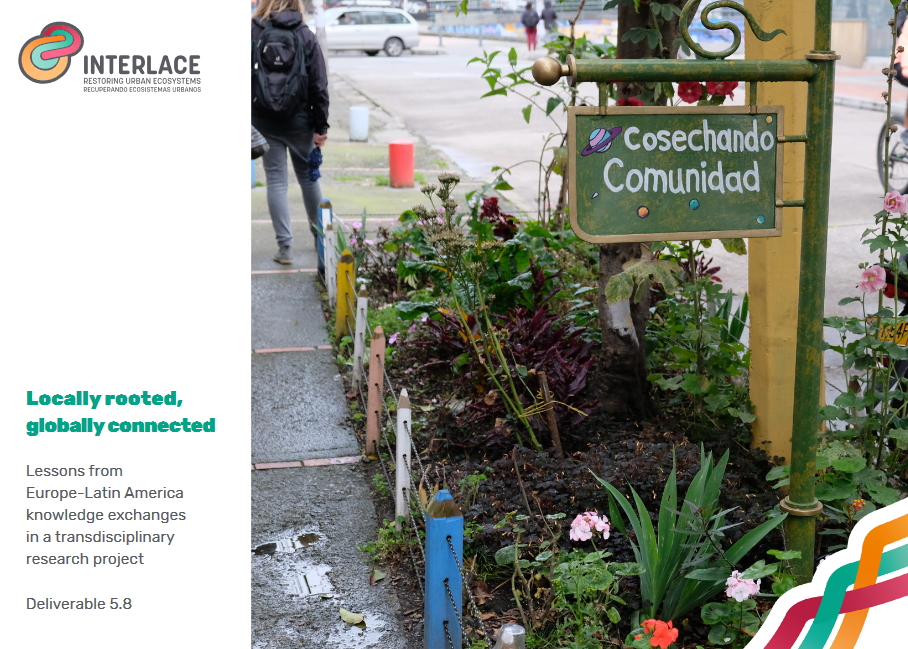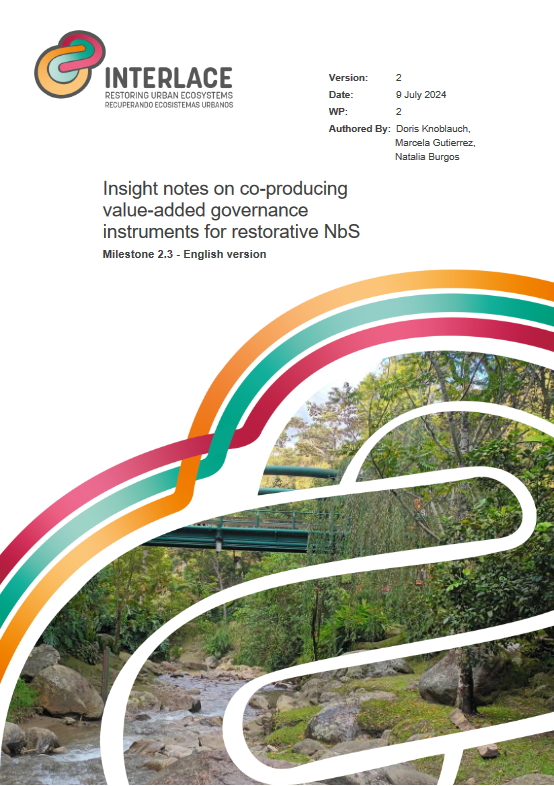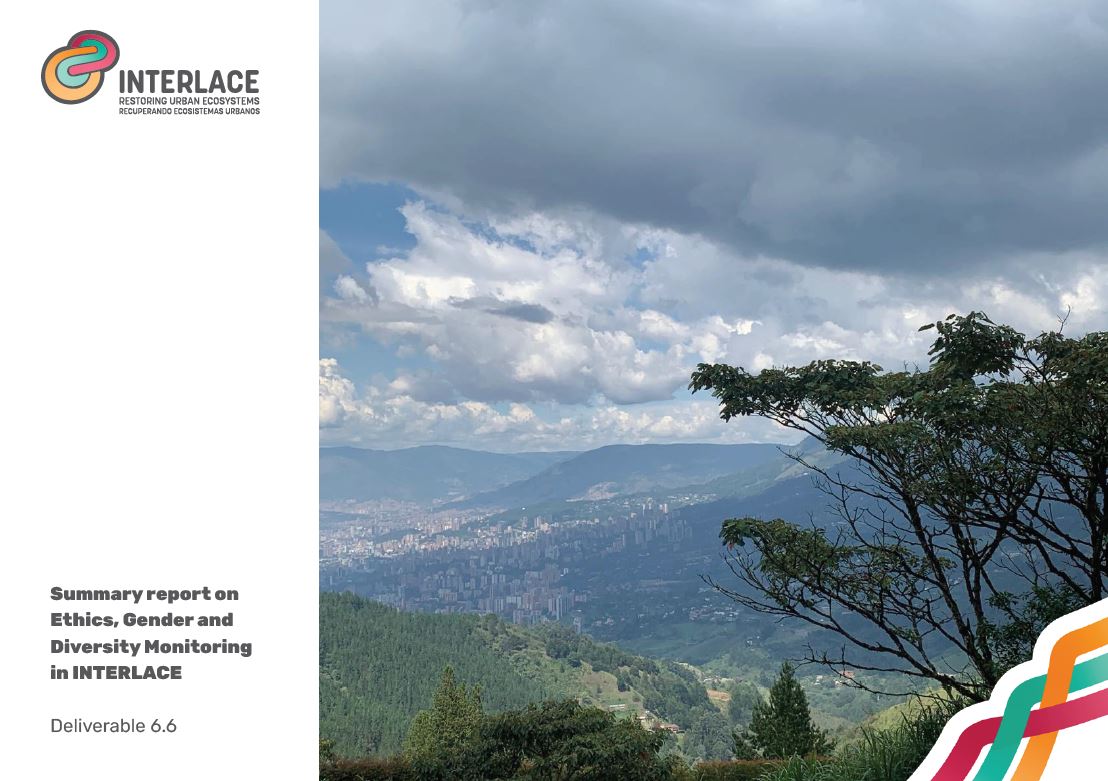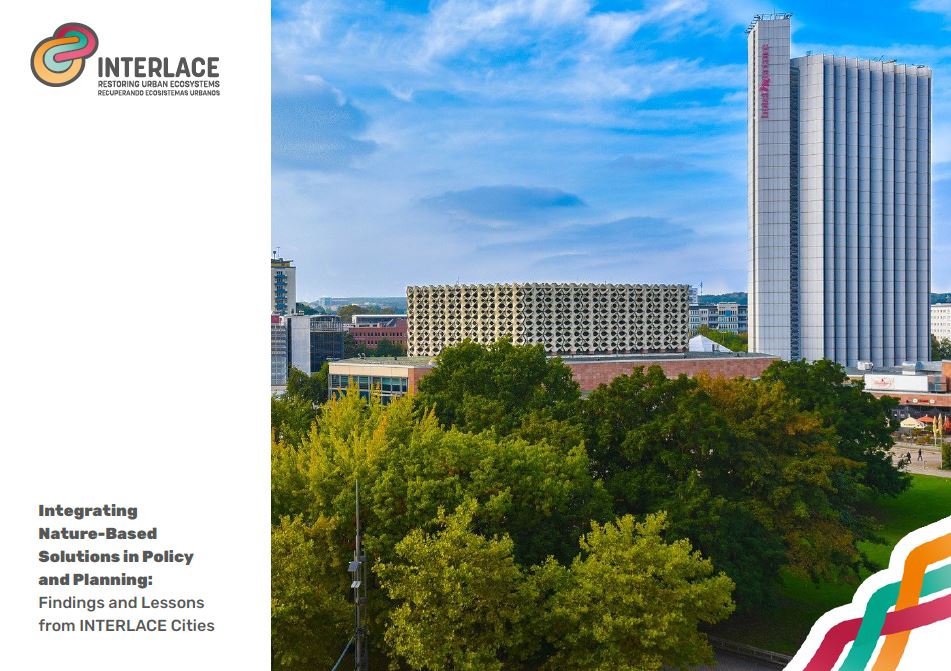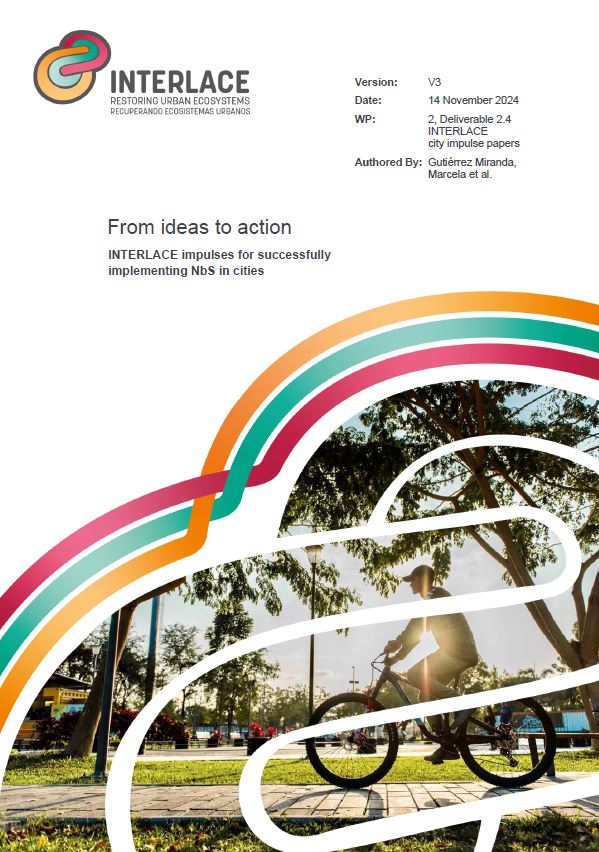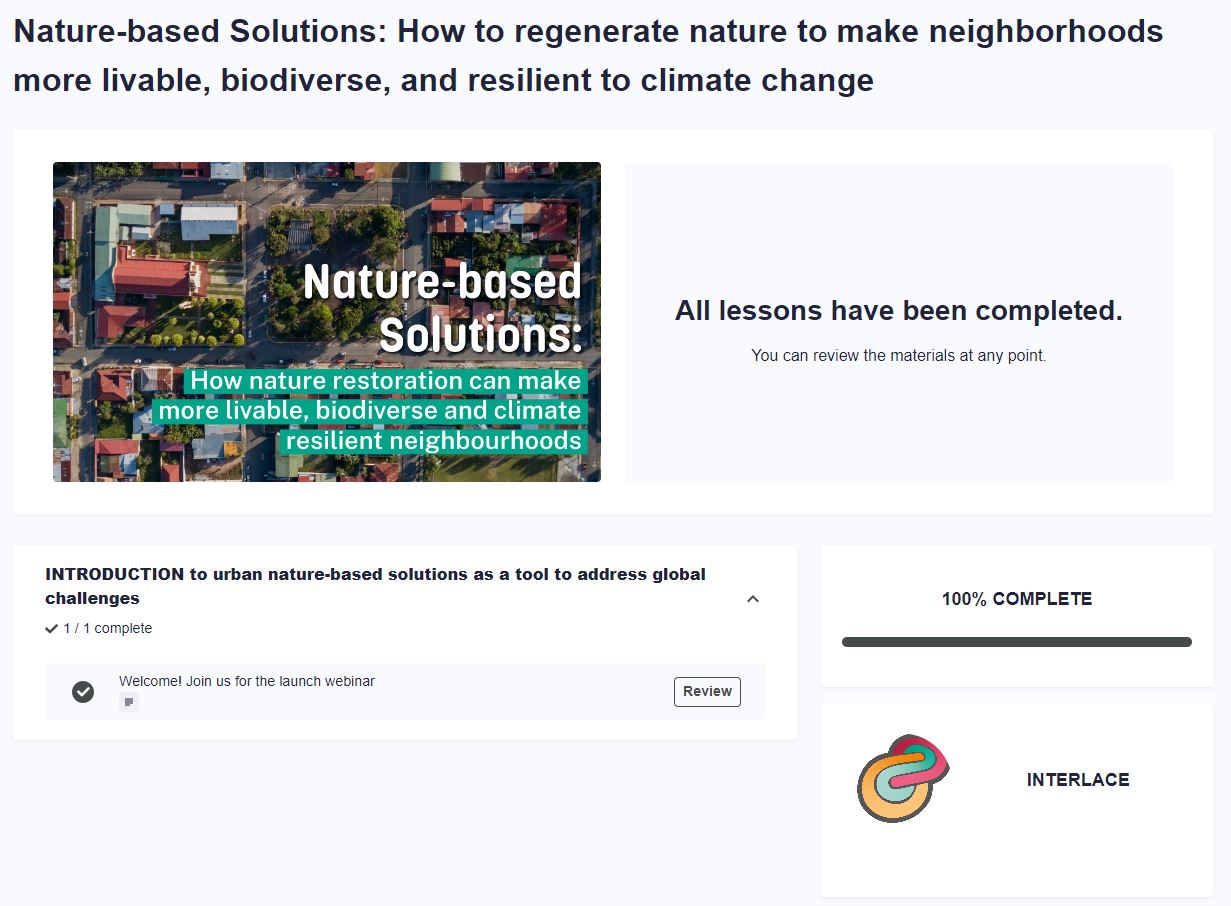Nature-based Solutions to Urban Challenges
- Publication
- Citation
Davis, M., Bueb, B. (2024) 'Nature-based solutions to urban challenges', EU Research, Autumn 2024 vol. (39), pp. 26 -27.
The INTERLACE project, funded by Horizon 2020, exemplifies innovative transdisciplinary approaches to tackling urban challenges through nature-based solutions (NBS). By fostering stakeholder engagement, developing practical tools, and supporting ecosystem restoration, the project empowers cities across Europe and Latin America to implement sustainable NBS. McKenna Davis and Benedict Buebfrom Ecologic Institute provided key insights into the project's progress and outcomes.
Urbanization and climate change have created pressing challenges for cities worldwide, from biodiversity loss to social inequities and infrastructure stress. Nature-based solutions (NBS) have emerged as a key strategy for addressing these multifaceted challenges, leveraging ecosystems to enhance urban resilience and sustainability.
Funded under the European Union’s Horizon 2020 program, the INTERLACE project focuses on empowering cities and communities to implement and scale NBS. By building local capacities and fostering international cooperation, INTERLACE ensures that NBS become integral to urban planning and governance frameworks.
Core Objectives of the INTERLACE Project
The INTERLACE project focuses on:
- Restoring Urban Ecosystems: Enhancing biodiversity and climate resilience through targeted restoration of urban and peri-urban ecosystems.
- Building Local Capacities: Providing training and tools to empower local governments, NGOs, and private actors to adopt sustainable practices.
- Integrating Policies: Mainstreaming NBS into policy frameworks to ensure their long-term adoption and alignment with climate and development goals.
- Fostering Collaboration: Establishing cross-regional networks for knowledge exchange between cities in Europe and Latin America.
- Innovative Tool Development: Creating frameworks and methodologies to guide cities in planning, implementing, and monitoring NBS.
Methods and Approaches
The project employs methodologies such as:
- Stakeholder Engagement: Workshops and participatory planning sessions ensure inclusivity and local relevance.
- Policy Alignment: Support for integrating NBS into governance structures to achieve coherent planning.
- Monitoring and Evaluation: Establishment of robust systems to assess ecological, social, and economic outcomes of NBS.
- Capacity Building: Development of knowledge platforms, training programs, and resources to empower stakeholders.
McKenna Davis and Benedict Bueb provided expert insights and guidance throughout these processes, ensuring the effectiveness and sustainability of the project's outcomes.
Achievements and Outcomes
The project has realized significant milestones:
- Innovative Tools: INTERLACE developed user-friendly tools for urban planners, including decision-making frameworks and scenario modeling platforms.
- Case Studies Across Regions: Tailored NBS projects were implemented in 17 cities, addressing challenges like urban heat islands and stormwater management.
- Governance Strengthening: Institutional frameworks have improved, ensuring better integration of NBS into urban policies.
- Awareness and Engagement: Outreach activities increased awareness about NBS benefits among diverse stakeholders.
- Sustainability Pathways: By embedding NBS within policies and practices, INTERLACE ensures long-term environmental and social benefits.
The INTERLACE project demonstrates that nature-based solutions are practical tools for achieving urban sustainability. Contributors, including McKenna Davis and Benedict Bueb, emphasized the importance of fostering collaboration and embedding NBS into governance frameworks. By providing innovative tools and capacity-building resources, INTERLACE serves as a model for scaling up NBS globally, ensuring resilient and inclusive cities for generations to come.





